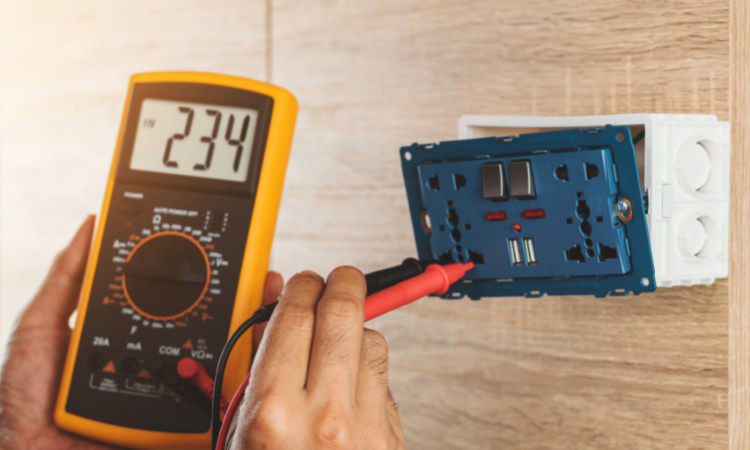Different Types of Voltage Detectors & their Uses

You may have probably heard of electricians talking about voltage testing, current testing, and loads more. In fact, you might have also seen them carrying high voltage detector hot sticks when they visit to check any appliance or a location’s electrical conditions. This particular equipment, titled a high voltage detector, is one way to check the effectiveness of any electrical device towards insulation. The main goal behind using this particular high voltage testing device is to determine the type and amount of current flow. Let’s further discuss voltage detectors in detail.
What Is a High Voltage Detector Device?
A voltage detector is an electronic device that determines the presence and absence of electric current in an object. Basically, it is a device that checks the presence of a high voltage current without any physical touch with the conductor. It gives the users an idea of whether it is safe to work on the electrical circuit or not. This is the reason why electricians use a high voltage detector hot stick before starting any work. Generally, transmission systems, indoor substations, distribution systems, etc use this system.
Basic Working Principle Of Voltage Tester
A voltage tester measures the flux lines of an electrical field that are formed between the earth’s potential and the main system. There are two types of testers with two different principle elements. One consists of magnetic induction, and the other has a capacitive sensor element. The non-metal voltage detectors usually detect voltage with the help of electrostatic induction.
Various Types of Voltage Tester
Neon Voltage Tester
This type of voltage tester is very similar to a high voltage insulation tester in terms of portability. This voltage tester comes in a compact size and has a neon light. This detector checks whether the voltage is present in the circuit.
Digital Voltage Tester
As the name suggests, a digital voltage tester works digitally and is contactless. Additionally, the tool’s main function is to check whether the technical instrument is working or if there is a presence of a fault.
Solenoid Voltage Tester
A solenoid voltage tester is also called a multi-function tester. And this type of voltage tester can check both polarity and voltage. This is the voltage tester that electricians mainly use.
Non-Contact Voltage Tester
This voltage tester is also known as an inductance tester. This type of voltage detector is the safest tester used in the industry. However, both professionals and homeowners can use this tester easily.
Different Types of Voltage Detectors Based On AC/DC Voltage
Pulsed DC Voltage Detector
This is a lightweight voltage detector that runs with the help of a battery. The basic principle of its working is charging the capacitor up to 400V and discharging it then to a high voltage coil. This process produces a high voltage pulse for a short duration of time.
Low-Frequency AC Voltage Detector
This type of voltage detector generally has a larger potential to deliver excess amounts of voltage. But the output in return is a low-frequency AC voltage.
High-Frequency AC Voltage Tester
This type of voltage detector is also called a spark tester. The voltage tester gets the power by the mains and detects electrical charges up to 50,000V. One major problem with this type of voltage detector is the capacitive loss effect.
DC Voltage Detector
This high voltage detector is battery-powered and provides an output as low as a few hundred volts. The basic working principle is that the battery triggers the high-frequency oscillator and converts the battery voltage from DC to AC.
High Voltage Detector Applications & Uses
As mentioned earlier, a voltage detector makes you aware of whether a circuit is live or not before you begin working on it. They easily check the presence of live voltage on the ac circuits, outlets, and switches before starting any work on them. But, every voltage detector has its own working principle, and based upon that, it gets in use of different machines.
One of the main applications of using voltage detectors is to check the presence of AC voltage around the surface. This check ensures that the electric circuit or appliance is safe to work upon. Additionally, Voltage testers can detect the presence of high voltage and indicate it with the help of audio or visual signals. Voltage detectors can detect the presence of high current in lighting fixtures, wires, electric cords, power cables, power outlets, etc. Some common applications of voltage detectors include:
- Battery voltage monitoring
- Level discrimination
- Resetting of microprocessor
- Level discrimination
- Easy switching to a circuit in the battery backup.
- Protection of the system.
Conclusion
Voltage detectors have a quick and inexpensive way to check the presence of live voltage in a circuit. With the help of live voltage detectors, we can easily do all the electrical chores in the best possible electrical safety category.




